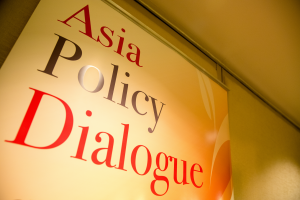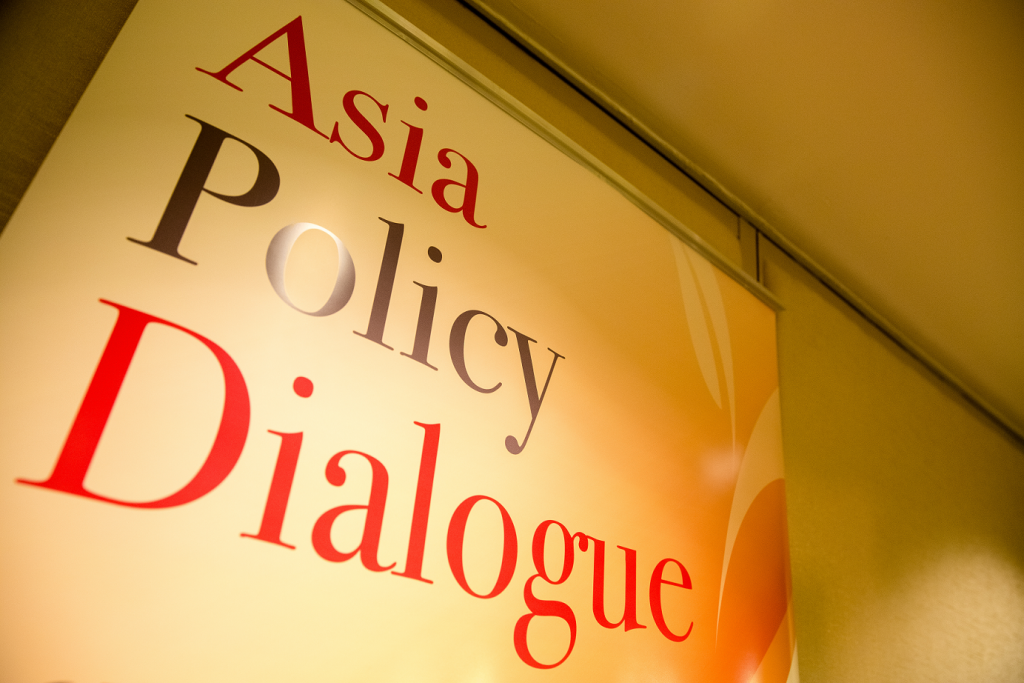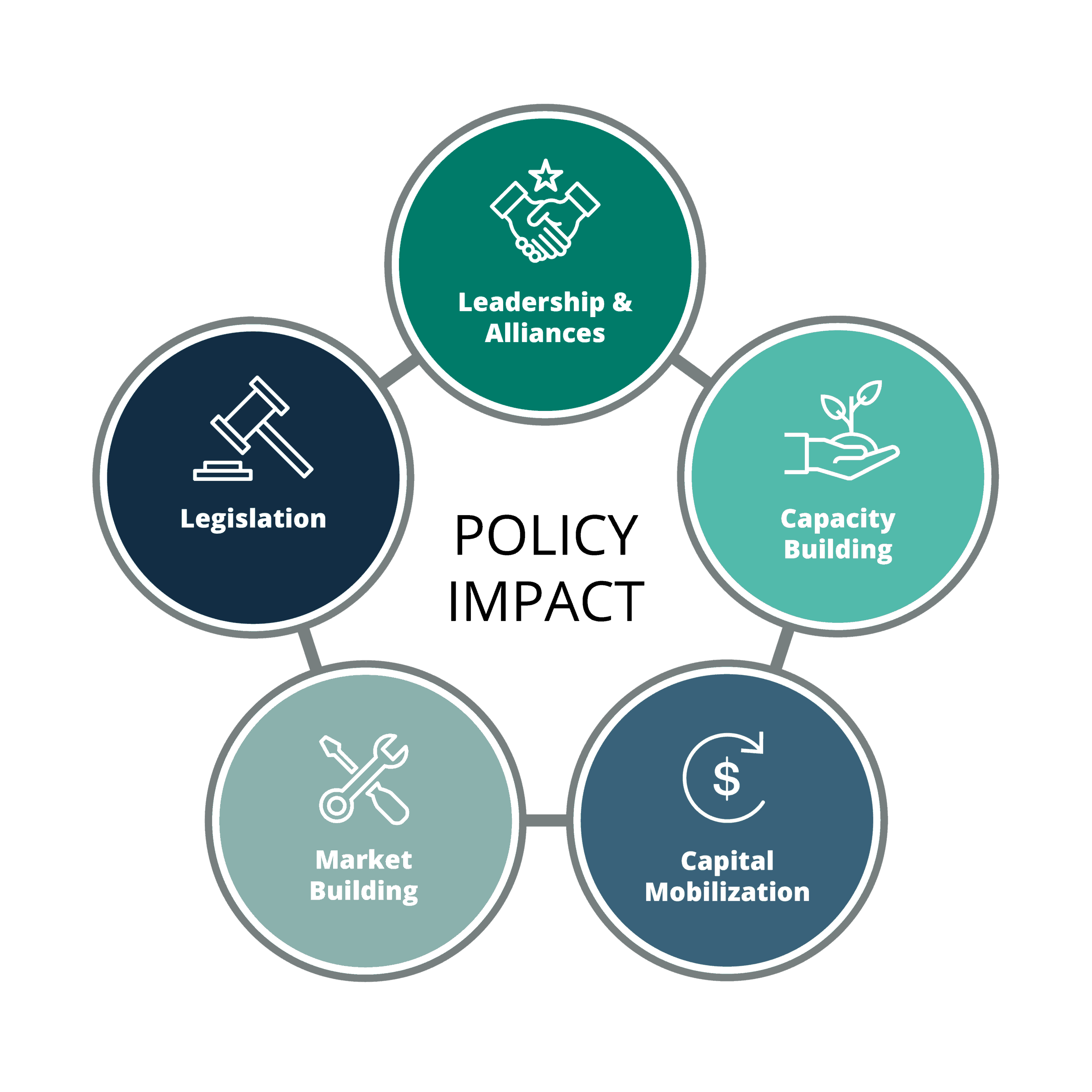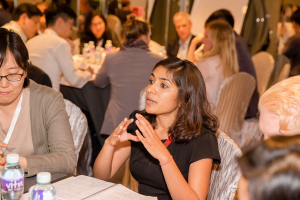With the Fourth Industrial Revolution underway, the quest for sustainable and inclusive pathways towards prosperity has accelerated the momentum of the social economy movement. This movement which deploys private sector models for the pursuit of double or triple bottomline outcomes, is gaining momentum globally.
Recognising this, policymakers and governments in Asia have begun to explore the possibilities that social entrepreneurship and social investment present towards meeting development objectives. Yet how will the traditionally cautious and guarded governments navigate and understand the distinctly private-sector-driven nature of the social economy? How shall these two spheres engage each other so that more friendly policy environments can be created to allow social economies to thrive?

Key Insights from the Asia Policy Dialogue 2016
The discussions at APD shed light on 5 common themes along which policymakers can take action to foster a dynamic and impactful social economy:
- Leadership and alliance building
Sharings from various delegates underlined the importance of political leadership in cross-agency, cross-sector alliance in catalysing social initiatives. In China and Indonesia, the government emphasises forging strategic partnerships between agencies, corporates and the civil society as the pathway that improves productivity, sharpens national competitiveness and improves social welfare. For the Japanese government, cooperation with the social sector is fundamental in ensuring sustainability of social programmes. This has led to the emergence of a ministry-level alliance between the Ministries of Economy, Trade and Industry (METI), of Health, Labour and Welfare (MHLW) and of Internal Affairs and Communications (MIC) to scale up successful social enterprise models and government contracting to the social sector. - Legislation and regulatory frameworks
Legislation and regulations lay the prerequisite legal foundation for new initiatives to flourish and contribute towards a thriving social economy. In China, the Charity Law passed in 2016 broadens the scope of what constitutes public welfare and charity; India is looking to ease regulations on fund structures to meet the growing impact investment demand.Many countries shared that forging internal alliances is key in the crafting of legislative frameworks for the social economy. Regulators need to increase their awareness and be bought-in to the case for social economy legislation. This becomes more complex when multiple policy fields or ministries are involved.
- Market Building
A sustainable consumer marketplace addresses the demand of consumers and organisations in a way that aids in the achievement of socio-economic objectives. Recognising this, the Korean government is looking to promote ethical consumption and collaborate with corporates and municipal governments to expand the market for social enterprises through social procurement. Singapore and Hong Kong are taking a different approach by integrating social aspects into the mainstream economy and private business, opening more market opportunities for socially-beneficial business activities. For them, this reflects the changing demands of the society, with an increasing number of millennials, that seek to not only do well but also do good. - Capital mobilisation
While financial support is essential to social business’ growth trajectory, the vast majority of them are struggling to access such capital. Innovative financing vehicles and fiscal/investment policies are crucial to bridge the funding chasm increasingly prevalent in the Asian social economies.Various government funds and investment vehicles have been established to capitalise more private capital into the social economies of Australia, Hong Kong, Japan, India and Malaysia. Creative instruments like Pay-for-success models have started to gain traction, with the introduction of social impact bonds by the New South Wales government and the Social Outcome Fund by the Malaysian government, as examples. - Capacity building
Recognising that nascent social businesses need support beyond funds to grow, Asian governments see that building up social enterprises’ capacity is key to a thriving social economy. Yet this remains a challenge where some Asian social economies are still in their infancy. Australia, Indonesia and Myanmar cited capacity building for local social enterprises as one of their biggest constraints. Singapore and the Philippines placed emphasis on talent development to cultivate the next generation of social innovators. Overall, the delegates concurred that leveraging on cross-sector expertise was key to strengthening the capacity of social businesses and their leaders.
As evident in the APD 2016 discussions, a collaborative approach by policymakers that engages all segments of government and society is paramount for the social economy to flourish and deliver meaningful large-scale impact. Efforts to create friendly policy environments for social economy should be firmly embedded in the intersection of the public, private and civil society sectors, and not marginalised as a niche sector. The nascent stage of many social economies in Asia means that they can benefit from experiences of more mature social economies around the world. Further, social economies in different stages of development in Asia is a distinctive source of strength, as that allows peer learning and selective emulation of success models.
Asia Policy Forum 2017 and The Way Forward

In view of this, in 2017 AVPN is convening the Asia Policy Forum (APF) on June 5th in Bangkok as part of AVPN’s ongoing work to engage influential policy-makers and social sector leaders and explore best practices for maximising social impact.


















 Legislation and regulations lay the prerequisite legal foundation for new initiatives to flourish and contribute towards a thriving social economy.
Legislation and regulations lay the prerequisite legal foundation for new initiatives to flourish and contribute towards a thriving social economy.  Recognising that nascent social businesses need support beyond funds to grow, Asian governments see that building up social enterprises’ capacity is key to a thriving social economy. Yet this remains a challenge where some Asian social economies are still in their infancy. Australia, Indonesia and Myanmar cited capacity building for local social enterprises as one of their biggest constraints. Singapore and the Philippines placed emphasis on talent development to cultivate the next generation of social innovators. Overall, the delegates concurred that leveraging on cross-sector expertise was key to strengthening the capacity of social businesses and their leaders.
Recognising that nascent social businesses need support beyond funds to grow, Asian governments see that building up social enterprises’ capacity is key to a thriving social economy. Yet this remains a challenge where some Asian social economies are still in their infancy. Australia, Indonesia and Myanmar cited capacity building for local social enterprises as one of their biggest constraints. Singapore and the Philippines placed emphasis on talent development to cultivate the next generation of social innovators. Overall, the delegates concurred that leveraging on cross-sector expertise was key to strengthening the capacity of social businesses and their leaders.